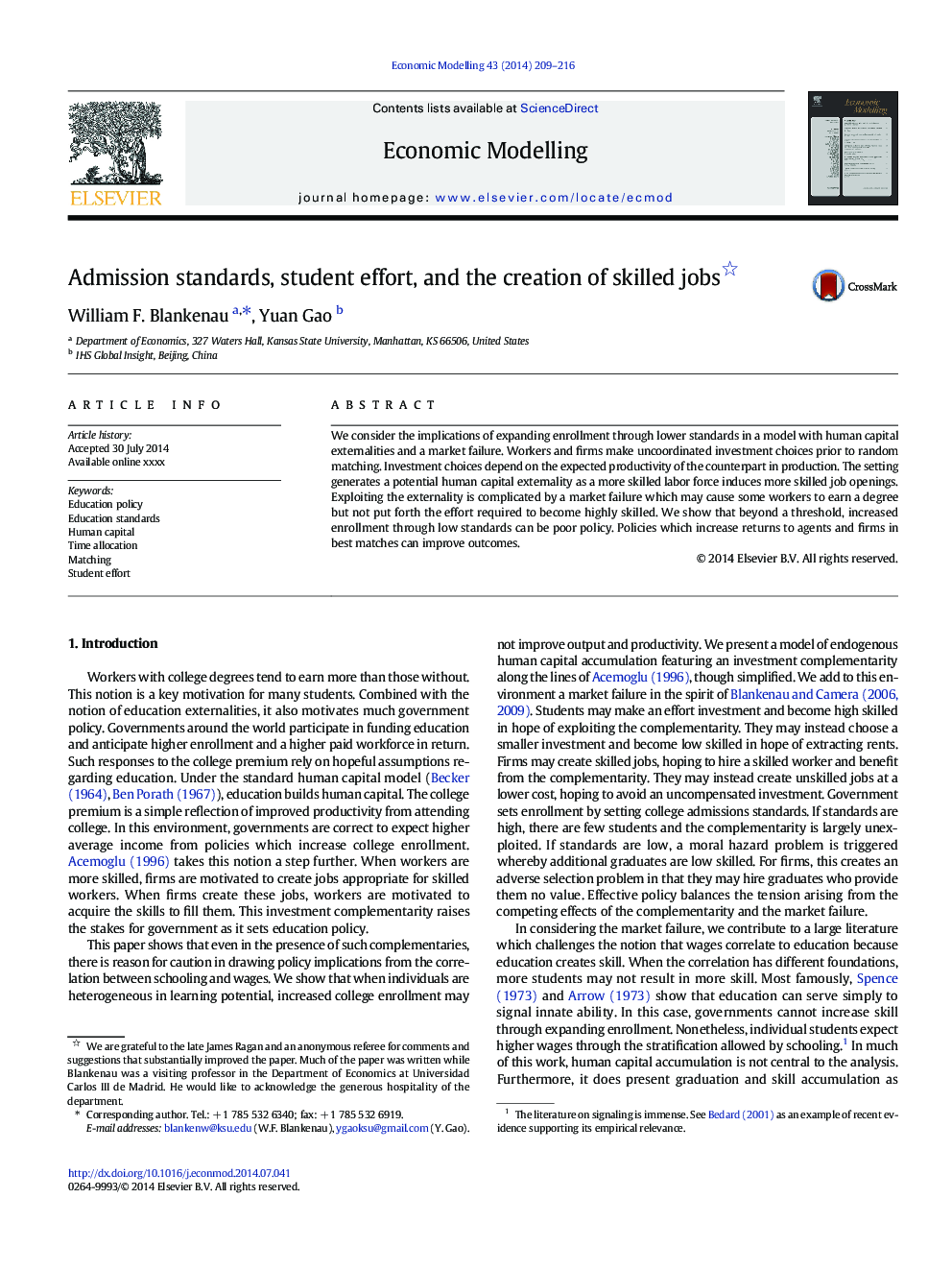| Article ID | Journal | Published Year | Pages | File Type |
|---|---|---|---|---|
| 5054179 | Economic Modelling | 2014 | 8 Pages |
Abstract
We consider the implications of expanding enrollment through lower standards in a model with human capital externalities and a market failure. Workers and firms make uncoordinated investment choices prior to random matching. Investment choices depend on the expected productivity of the counterpart in production. The setting generates a potential human capital externality as a more skilled labor force induces more skilled job openings. Exploiting the externality is complicated by a market failure which may cause some workers to earn a degree but not put forth the effort required to become highly skilled. We show that beyond a threshold, increased enrollment through low standards can be poor policy. Policies which increase returns to agents and firms in best matches can improve outcomes.
Related Topics
Social Sciences and Humanities
Economics, Econometrics and Finance
Economics and Econometrics
Authors
William F. Blankenau, Yuan Gao,
